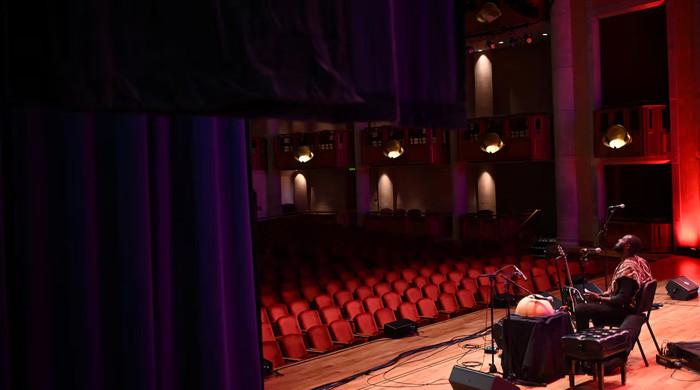A toy store manager is now grappling with daily notifications of price increases. A lip balm producer is anticipating a $5 million surge in the cost of goods. The operator of a concert venue was shocked by a sudden $140,000 price increase for the installation of new seats in a performance hall.
These individuals are among a group of business owners and managers who have spoken about the repercussions of President Donald Trump’s tariff policies. Their experiences offer an early glimpse into what many more individuals might anticipate, particularly given that taxes on imports—typically paid by US companies and frequently passed on to consumers—were temporarily suspended for 90 days this week.
The business leaders voiced worries about ongoing economic instability. While declaring the 90-day tariff suspension for numerous countries, Trump escalated tariffs on imports from China, effectively raising them to 145% when factoring in levies imposed earlier in the year. He sustained tariffs on imports from the majority of other nations at 10% for 90 days, following a period of volatility regarding trade taxes over the past week.
Tariffs on goods from Canada and Mexico that are not covered by the existing trade agreement in the region remain at 25%.
“We are constantly navigating the uncertainty surrounding the future and our supply chains,” stated Steve Shriver, the founder and CEO of Eco Lips, a Cedar Rapids, Iowa-based company that produces organic health and beauty products. The company sources ingredients from over 50 countries and sells its products in 40,000 stores across the nation, generating approximately $30 million in annual sales.
On Wednesday, coinciding with Trump’s announcement of the suspension, Shriver informed 300 clients for whom Eco Lips manufactures products under their own labels that prices would be increased and delivery schedules would be extended.
“I am wary. It is a 90-day suspension, and it could be reversed in a matter of days,” Shriver commented. “The across-the-board 10% tariffs remain in place, which significantly inflates our prices.”
Shriver anticipates that his cost of goods over the next 12 months could rise by $5 million, in addition to his typical $10 million annual expenditure on items such as vanilla, coconut oil, and cacao, which cannot be cultivated in the US.
Other business figures revealed that they have canceled purchase orders, suspended expansion plans, and postponed hiring.
‘We’re scrambling’
Shriver and others indicated that they have received notifications of price increases from suppliers and have already raised their own prices since Trump initially announced tariffs last month. These measures were intended to address what he described as unfair trade imbalances. Additionally, Trump has imposed tariffs to achieve objectives such as curbing migration and illicit drugs and promoting domestic manufacturing.
Paul Kusler’s Into the Wind, a well-known kite and toy store in Boulder, Colorado, has been in operation for 45 years and generates around $2.5 million in annual sales. The majority of the products Kusler sells are manufactured in China.
“The tariffs on China are simply unfeasible and pose a significant threat to our business,” Kusler explained, standing amidst an array of colorful kites, Frisbees, puppets, stuffed animals, and various other toys. “We settle bills weekly, and these price increases are already affecting items that are in our inventory.”
Kusler noted that the price increases he has observed range from 7% to 10%, reflecting the brief period when tariffs on China were at 34% following Trump’s announcement of the trade taxes on April 2.
Kusler estimates that he can absorb about 3% of the increased costs. He also mentioned that he has already witnessed and expects to continue experiencing suppressed consumer demand due to economic uncertainty.
“People will not purchase toys if they are concerned about rising prices for essential goods like food,” he stated.
Emily Ley, the owner of Simplified, a Pensacola, Florida-based company specializing in high-end office planners for women, stated that since Trump imposed tariffs on Chinese goods in 2017 during his first term, she has remitted well over $1 million in trade taxes to the US government.
She projects that at the new tariff level for China, she will nearly match that $1 million within the next 12 months.
Ley mentioned that she had attempted for years to have her goods manufactured in the US, but found it impossible to do so while maintaining profitability.
“This could potentially bankrupt us and force us to close down,” she lamented. “We are currently scrambling to determine our next course of action.”
One of Ley’s initiatives involves suing the US government, asserting that the taxes unconstitutionally rely on statutes unrelated to tariffs.
In Denver, Colorado, Aisha Ahmad-Post, the executive director of the Newman Center for the Performing Arts at the University of Denver, has dedicated over a year to overseeing a major renovation—the replacement of all 971 chairs inside the June Swaner Gates Concert Hall.
The Newman Center evaluated chairs from two US suppliers and one in Canada. One of the American manufacturers exceeded their budget significantly, while the other’s chairs necessitated the use of harsh dry-cleaning solvents for upkeep. In early 2024, Ahmad-Post procured chairs from Montreal-based Ducharme for slightly over $560,000 and blocked out a six-week period in mid-July to accommodate the installation.
On March 5, Ahmad-Post received correspondence from Ducharme indicating that they were obligated to comply with the new Trump trade taxes and “apply the corresponding tariffs to your project.”
At the time, these tariffs for Canada were at 25%—resulting in a $140,000 increase for the Newman Center seat project, an unwelcome development for an institution still endeavoring to replenish its rainy day fund depleted by the COVID-19 pandemic.
“The chairs are already in production, so we cannot simply change course,” Ahmad-Post stated. “We are now grappling with how to finance this additional expense.”



Comments (0)
No comments yet. Be the first to comment!
Leave a Comment